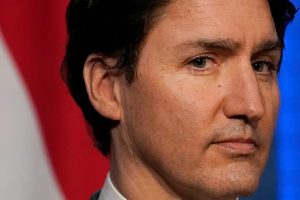Can Elon Musk save Twitter?
“I made an offer,” tweeted Elon Musk this morning, with a link to an SEC filing. The document details Musk’s bid to buy Twitter. In an accompanying letter to the company’s chairman, Musk gave his reasons:
I invested in Twitter as I believe in its potential to be the platform for free speech around the globe, and I believe free speech is a societal imperative for a functioning democracy.
However, since making my investment I now realize the company will neither thrive nor serve this societal imperative in its current form. Twitter needs to be transformed as a private company.
As a result I am offering to buy 100% of Twitter for $54.20 per share in cash… My offer is my best and final offer and if it is not accepted, I would need to reconsider my position as a shareholder.
Twitter has extraordinary potential. I will unlock it.
You won’t usually find much M&A news in the DC Diary, but given that a free speech absolutist is pursuing a hostile takeover of the West’s de facto public square, we’re making an exception for this business bombshell.
The days since Musk became Twitter’s largest shareholder have seen a lot of alarmist warnings about the dangers of allowing people to say what they want on the internet. At times this argument has been taken to absurd extremes. Take, for example, a recent Guardian op-ed by former labor secretary-turned-Twitter bore Robert Reich. Calling Musk’s libertarian attitudes to the internet “dangerous nonsense,” Reich argued that a freer internet would be the dream of strongmen and dictators the world over. I won’t insult your intelligence by pointing out the obvious problem with this claim.
But if overblown doomsaying was bad before this morning’s news, it is about to go into overdrive. Expect predictions of Musk unleashing hordes of far-right cranks and amplifying every neo-Nazi he can find until the libs have been well and truly owned and democracy is in ruins. A taste of what’s to come came in a tweet form from Washington Post columnist Max Boot, who admitted he was “frightened” by the prospect of Musk owning Twitter.
Musk’s bid will also mean an amusing inversion of talking points in the debate over free speech online. For years, the response to conservative calls for something to be done about Twitter’s free speech problem has been to point out that, as a private company, it can do as it pleases, banning and censoring whoever it likes. How long, one wonders, until the roles are reversed in that particular scuffle?
Given Twitter’s censorious default setting at present — sometimes arbitrary and inexplicable rules often applied inconsistently — it’s hard not to be cheered by the news of Musk’s attempted takeover. A social network run by Musk would, it seems reasonable to predict, be a more chaotic, freer and ultimately more democratic place.
But the idea of Musk as savior is, ultimately, only marginally less silly than the idea of Musk as existential threat to democracy. The world’s richest man described himself as going “goblin mode” when he made his initial purchase of Twitter stock.
In that spirit, I’m still holding out for the best-case scenario: that rather than saving the social network, Musk decides to save us from its distracting, toxic influence. There must be an off switch somewhere, Elon. And if there isn’t, perhaps you could make Twitter so appallingly unusable that the whole thing withers and dies, leaving us to do what we all know is in our best interests: log off.
*** Sign up to receive the DC Diary in your inbox on weekdays ***
The never-ending Covid inconsistencies
This administration hasn’t always been especially clear in its Covid messaging and policymaking. That remains the case at the tail end of the pandemic. Even as the pandemic fades from the political conversation, inconsistencies in the federal response still pose political problems for the president.
For example, the CDC may see the logic in lifting Title 42, which allows border agents to turn away migrants on public health grounds, while also extending the mask mandate for air travel and public transportation. But it will be framed as a double standard by critics of the administration. Similarly, the White House says the economy is humming along, but also that it’s too soon to ask graduates to start repaying their loans. Whether it’s economics, mask mandates or immigration rules, the administration leaves the impression that Covid has become a tool of political convenience: an excuse deployed selectively and unscientifically. Why, a reasonable voter might therefore ask, should we take that guidance seriously?
Who is Jake Sullivan’s cleverest boss?
National security advisor Jake Sullivan put in a public appearance at the Economic Club of Washington, DC this morning. He was interviewed by Carlyle co-founder and all round District hobnobber David Rubenstein. “So you’ve worked for Hillary Clinton, you’ve worked for Barack Obama, you’ve worked for Joe Biden, who’s smarter?” Sullivan was asked. “No comment,” he answered.
What you should be reading today
Ben Sixsmith: Frank James’s private hell
Matt McDonald: Masks on planes are making me sick
John Steele Gordon: Inflation is here to stay
Tal Kopan and Joe Garofoli, San Francisco Chronicle: Colleagues worry Dianne Feinstein is mentally unfit to serve
Ross Douthat, New York Times: How to make sense of the LGBTQ culture war
Meredith McGraw and Holly Otterbein, Politico: Trumpworld struggles to contain Oz endorsement fallout
Poll watch
President Biden Job Approval
Approve: 40.6 percent
Disapprove: 52.3 percent
Net approval: -11.7 (RCP Average)
Does America have a moral responsibility to do more to stop the killing of civilians in Ukraine?
Yes: 68 percent
No: 24 percent (Quinnipiac)


















